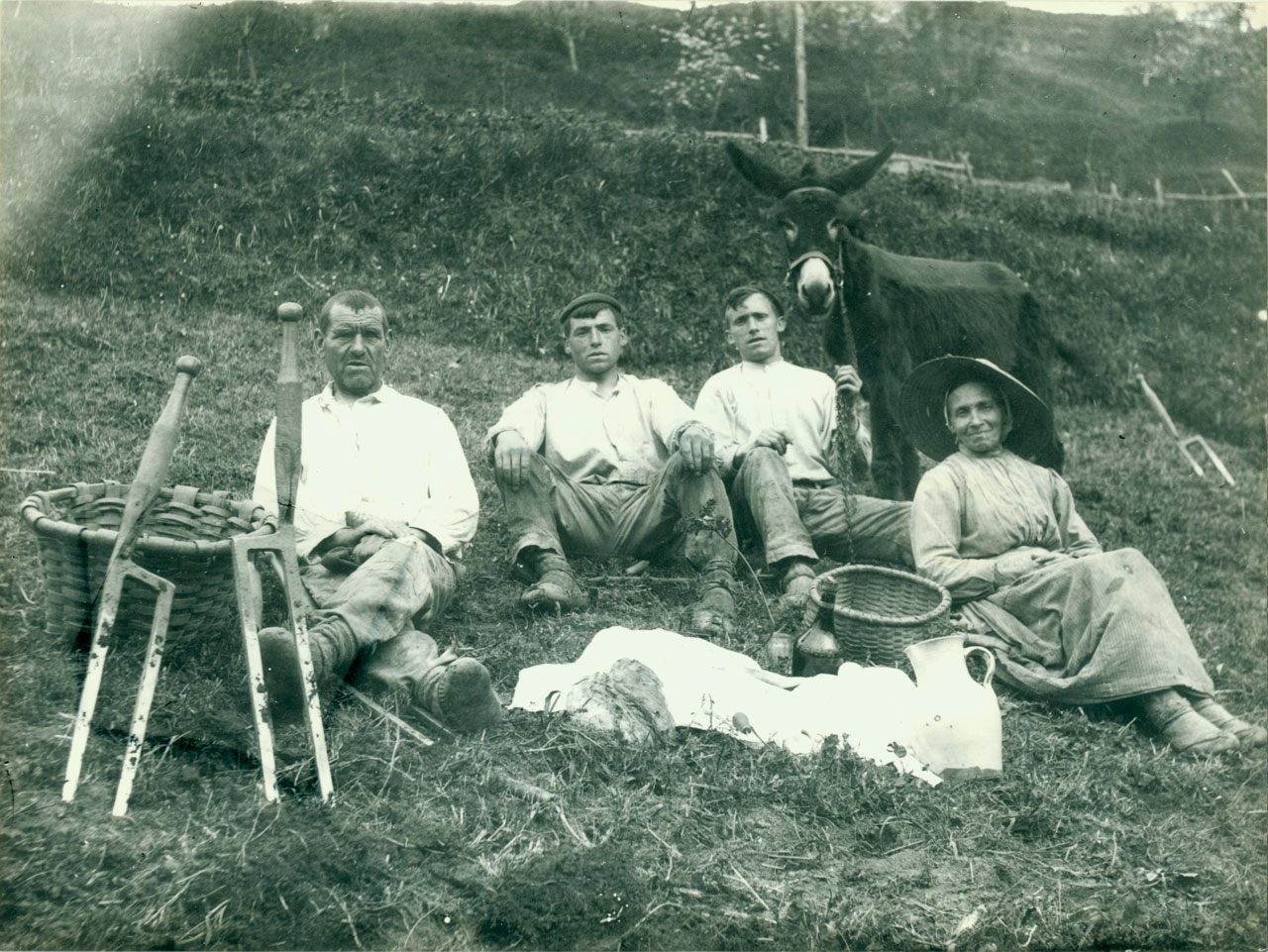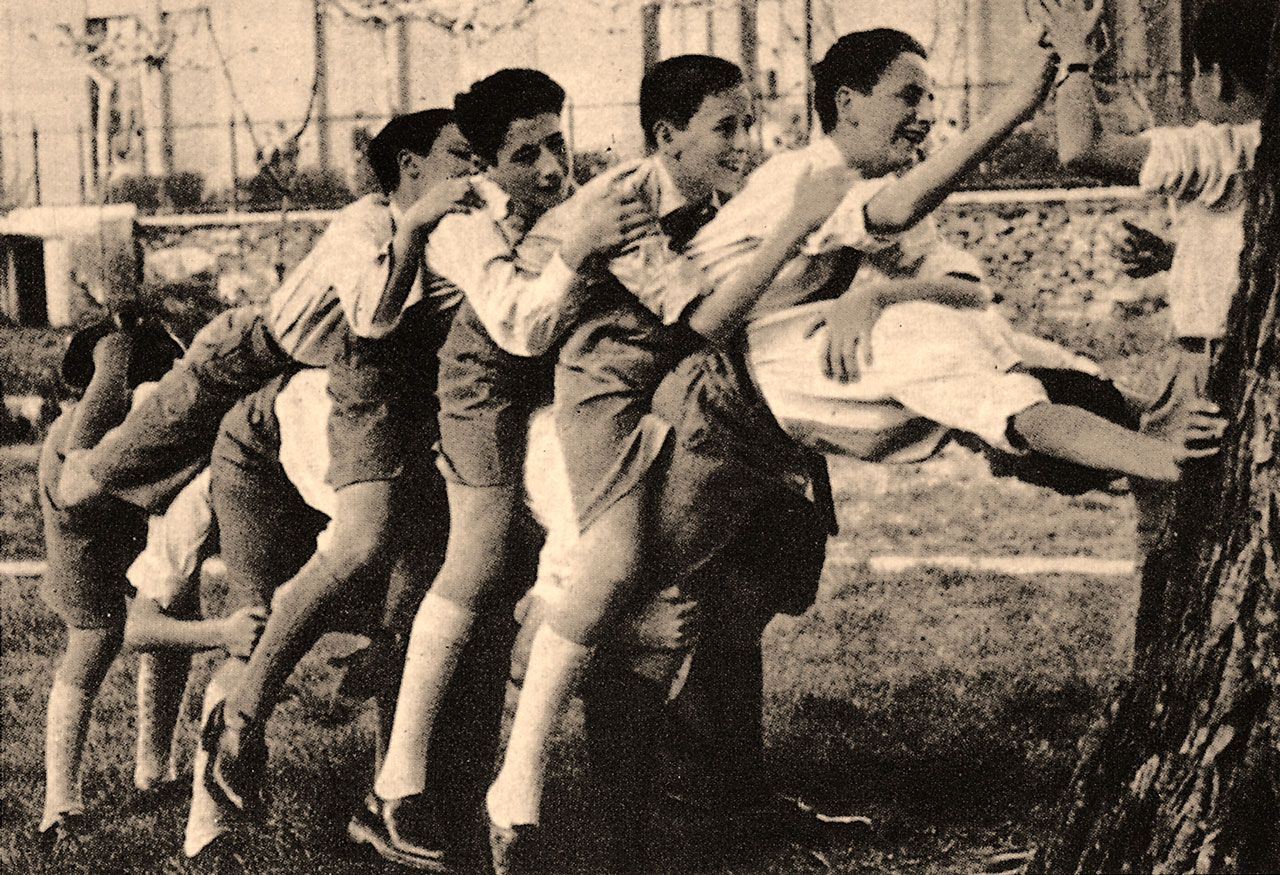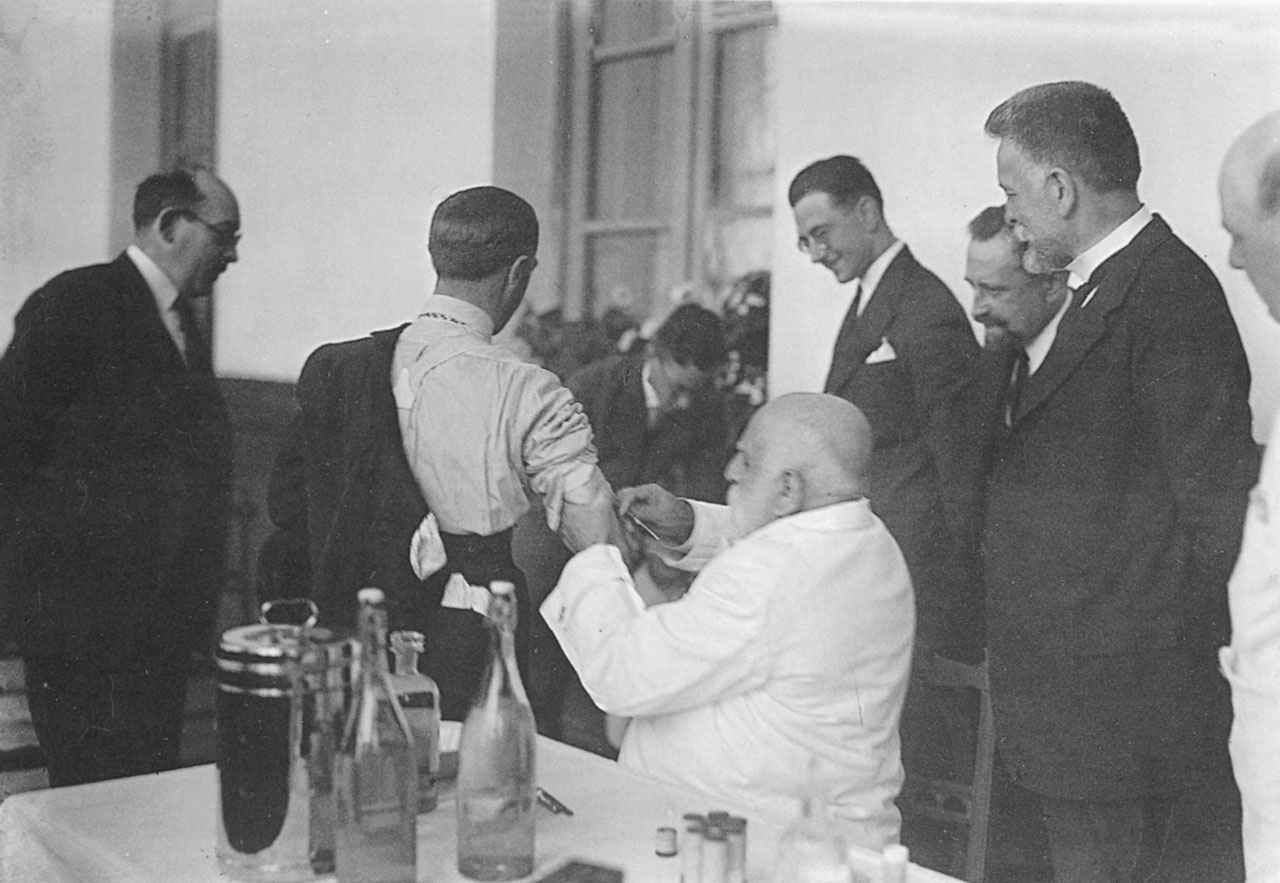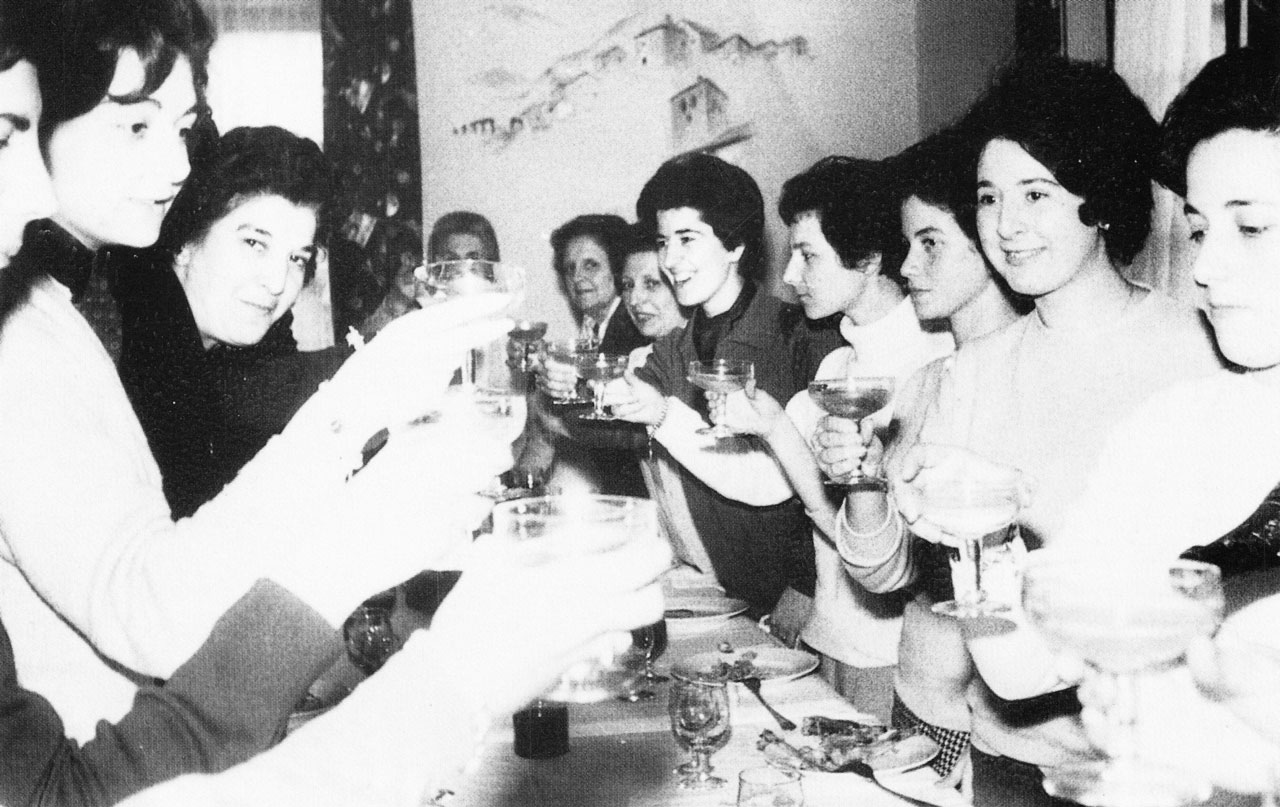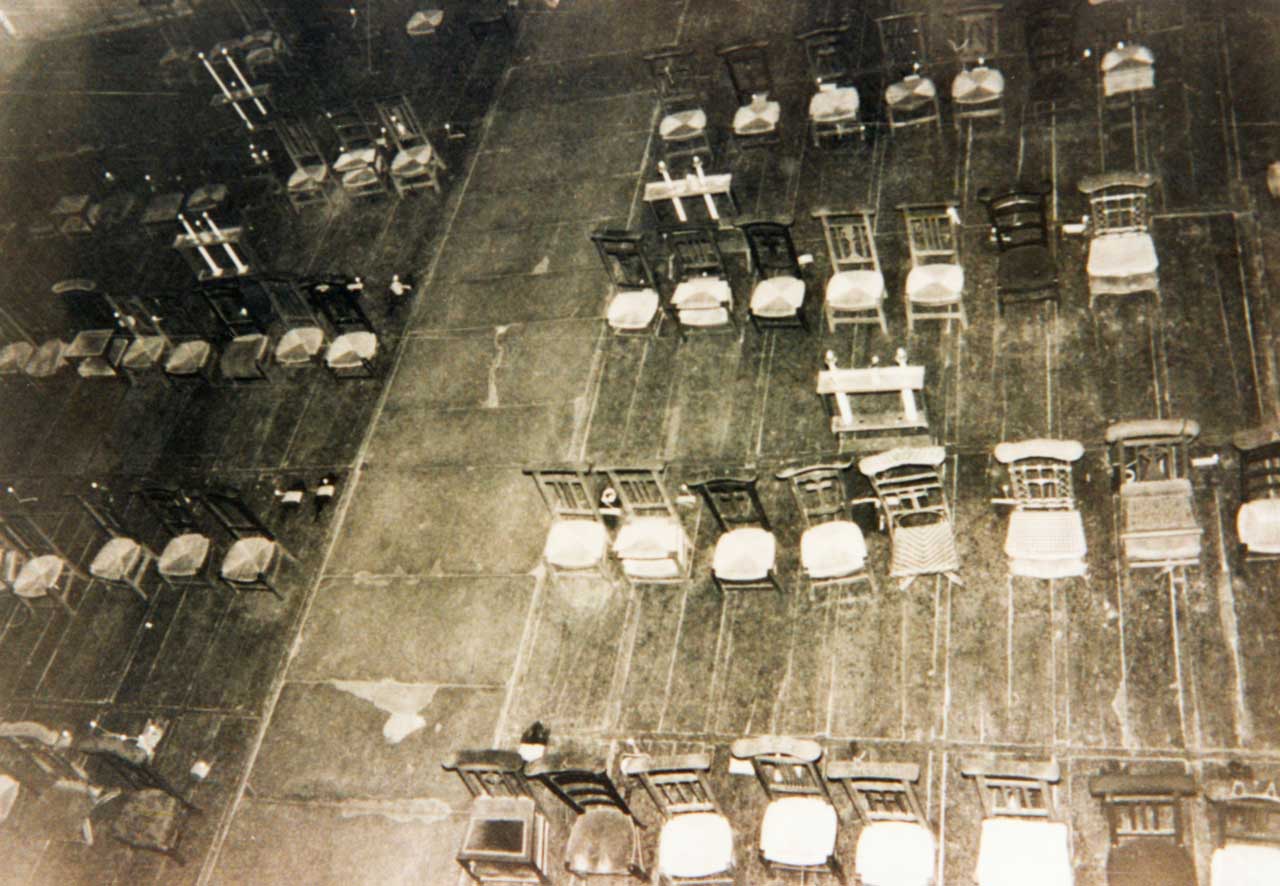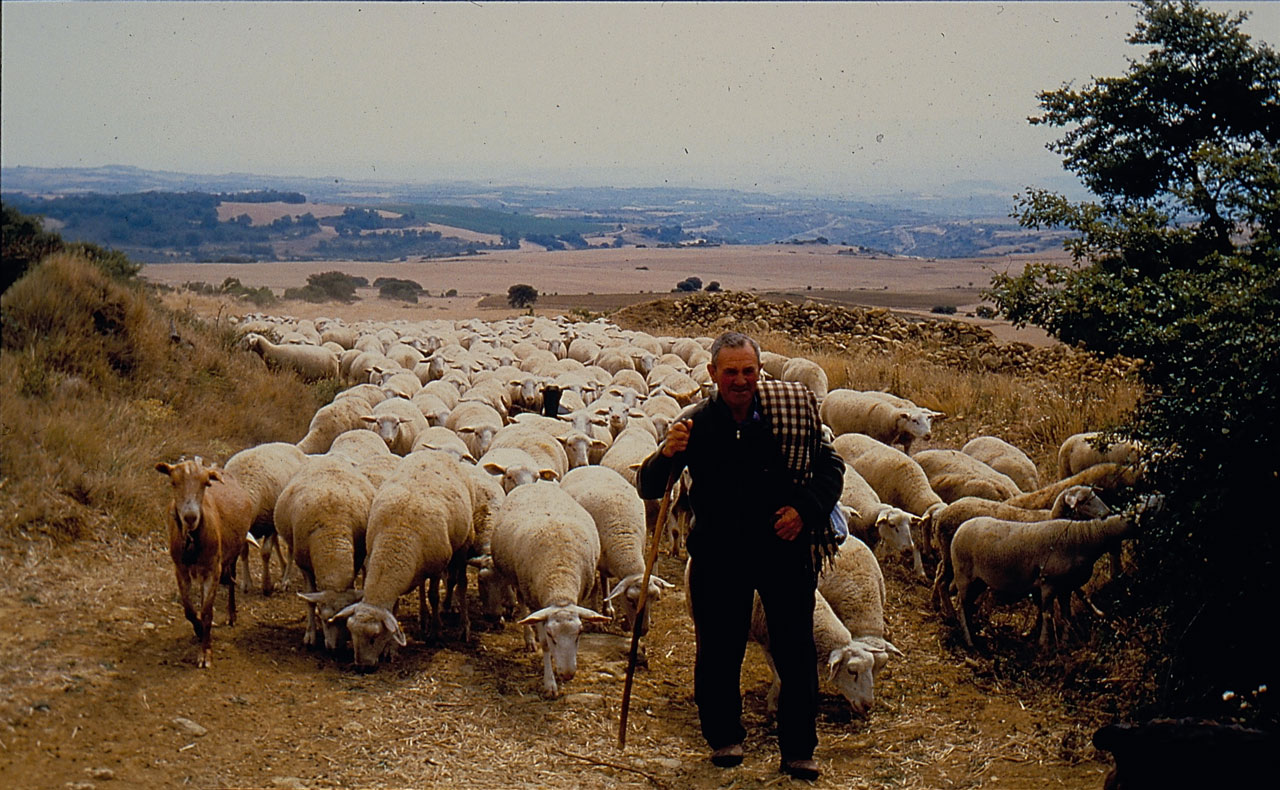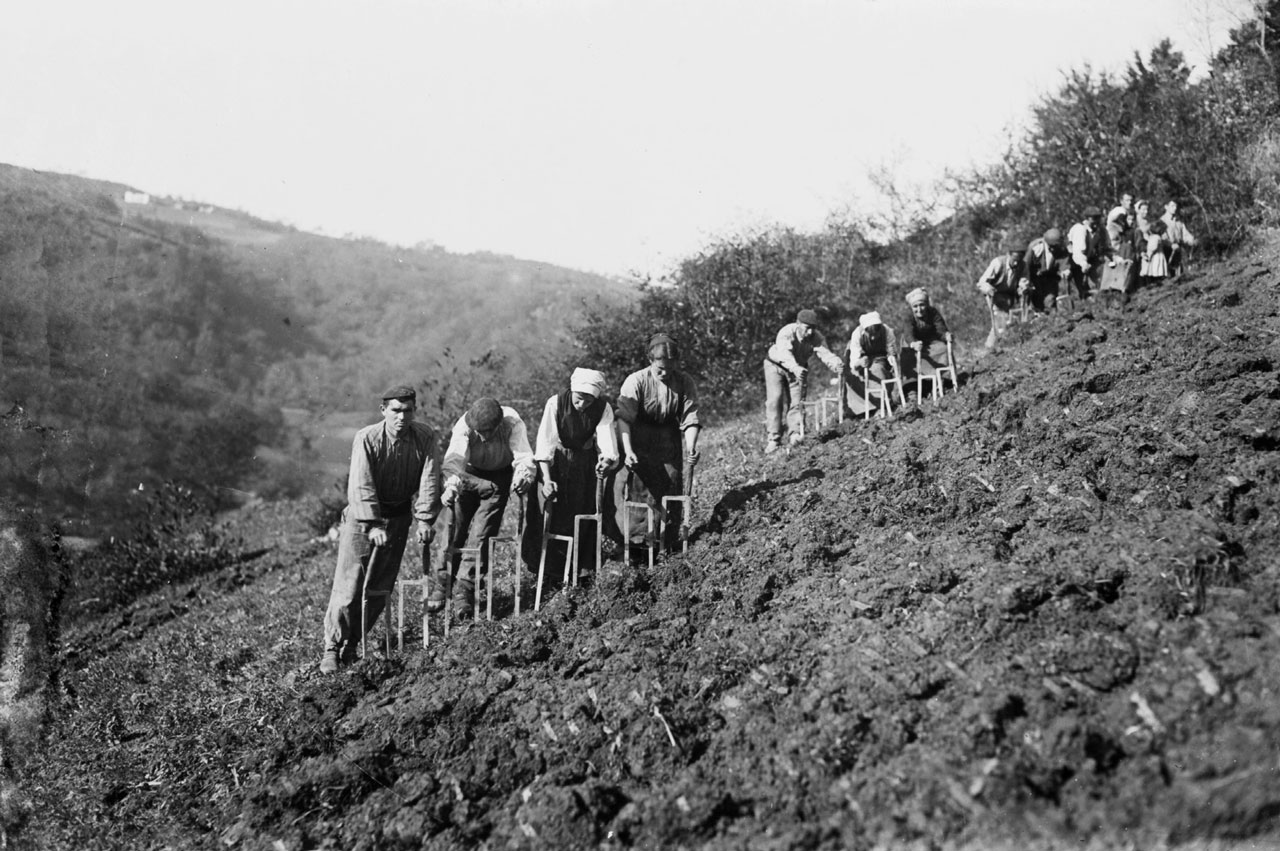Ethnographic Atlas of the Basque Country
From Atlas Etnográfico de Vasconia
Four generations of the same family. Ajangiz (B), 1977. Source: Segundo Oar-Arteta, Etniker Euskalerria Groups.
House and Family in the Basque Country


House and Family in the Basque Country
The family was the cornerstone of the farmstead, and the farmsteads along with the families provided coherence and structure to the neighbourhood and society.
Family Diet in the Basque Country


Family Diet in the Basque Country
Goseak dagonarentzat, ogi gogorrik ez. The famished make a feast out of bread crumbs.
Leapfrog jumping. Source: Iñigo Irigoyen, José. Folklore Alavés. Vitoria-Gasteiz: Chartered Government of Álava, 1949.
Children’s Games in the Basque Country


Children’s Games in the Basque Country
Astoka One or more participants bend down in a position that is usually called a frog and the others jump over them.
Traditional Medicine in the Basque Country


Traditional Medicine in the Basque Country
Pharmaceutical products have gradually replaced traditional cures.
Rites from Birth to Marriage in the Basque Country


Rites from Birth to Marriage in the Basque Country
The transfer of the chattels was a ritualised act of great importance as it marked the entry of the new spouse in the home, etxe-sartzea.
Funeral Rites in the Basque Country


Funeral Rites in the Basque Country
Each homestead used to have a burial site inside the church’s nave. When burials were transferred to cemeteries, the once real burial site in church became a symbolic family grave, were offerings of light and bread were made to their dead.
Shepherd from Lanciego (A) on the climb to Toloño, 1996. Source: José Ángel Chasco, Etniker Euskalerria Groups.
Livestock Farming and Shepherding in the Basque Country


Livestock Farming and Shepherding in the Basque Country
The Mediterranean watershed of the Basque Country was, and to a large extent is, characterized by the importance of the commons, the communal character of their exploitation by associations and brotherhoods comprising multiple municipalities still persisting today.
Agriculture in the Basque Country


Agriculture in the Basque Country
Spades, ploughs, rakes, sickles, scythes and threshers were the essential tools for agricultural work.

